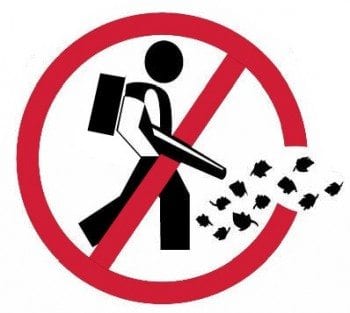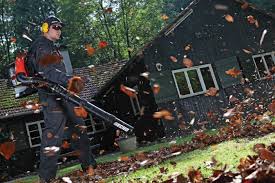WBZ: Nearly half of 320 leaf blower complaints came from 15 people
Since new leaf blower restrictions took effect this year, Newton police have received hundreds of complaints from residents, putting a strain on their resources, WBZ reports.
Since new leaf blower restrictions took effect this year, Newton police have received hundreds of complaints from residents, putting a strain on their resources, WBZ reports.
Under Newton’s new leaf blower ordinance, gas powered leaf blowers cannot be used from Memorial Day to Labor Day.
But the legislation also includes this provision:
During times of emergency caused by a storm or other special circumstance, the Mayor or his designee may temporarily suspend application of all or a portion of this section for purposes of cleaning up from such storm or other special circumstance.
Based on what I’ve been reading about the giant tar spot virus, this seems to be one of those times when Mayor Warren should make an exception. This is not an argument against the ban itself but specifically because
Wicked Local Newton posted these photos with this explanation.
A resident sent in photos taken earlier this week of the campus of Newton South High School, clippings from recently mowed grass either still in place or having been blown to the street or sidewalk. The city’s updated leaf blower law, which went into effect earlier this year, prohibits the use of gas-powered leaf blowers in the summer. Electric or battery-powered blowers are allowed, but apparently the city’s contractor did not use them to clean the debris.

Newton’s new ban on gas-powered leaf blowers begins on Memorial Day and continues until Labor Day.
The Globe’s John Hilliard reminds us about the specifics…
Thanks to a new set of rules approved by city councilors in January, only one battery- or electrically-powered leaf blower at a time can be used per lot from Memorial Day to Labor Day.
The same regulations also bar
Newton City Councilors will meet Jan. 17 to debate and possibly vote on a proposed summer leaf blower ban. Do you support the ban? Vote in our poll and share your views in the comments section.
[polldaddy poll=”9633861″]
Mayor Setti Warren still has “serious concerns” about additional restrictions city councilors might impose on leafblower use in Newton and Jonthan Dame explains why and updates us on the proposed summer ban.
I’m generally sympathetic to the Newton landscapers’ concerns about the impact of a leaf blower ban on their livelihood. But I really did not follow the “Immigrant Lives Matter” signs they displayed at City Hall Monday evening. Can someone explain?
Opponents of #newtonma leafblower restrictions holding signs saying rules will cost them $, “immigrant lives matter” pic.twitter.com/ADeywKzVTG
— Jonathan Dame (@DameReports) November 22, 2016

Read the full editorial here.
The voices of those bothered by leaf blowers have been heard loud and clear — especially during the past couple years. Their complaint is understandable: The blowers are indeed noisy and at times they are improperly utilized. Even many landscapers understand this.
But the regulations as proposed by P&S go too far — and in some cases could exacerbate the situation through unintended consequences. Consider this: If the 65-decibels limit were to be enforced (it currently is not, even though it is on the books) it would take two blowers to do the work of one, requiring more manpower by landscapers and probably taking longer per job. In other words: more expensive landscaping bills and an extended duration of noise.